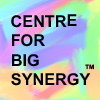The Centre for Big Synergy is celebrating the success of these exemplary initiatives that have banked on cross-disciplinary synergy to produce extraordinary results. The impact of these initiatives is profoundly far reaching and is positively affecting us and the planet. These projects act as fitting examples and case studies to derive ideas to exploit cross-disciplinary synergy in attaining bigger objectives than otherwise. These individuals and organisations can always shed more light on their experiences and lessons learnt from these initiatives to enrich the wisdom of new synergists and partner organisations.
Food, health, well being
Community supported initiatives to fight hunger and food waste
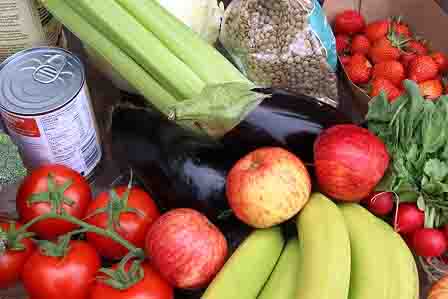
Hubbub.org has created a simple way of sharing good food that would otherwise go to waste using a community fridge. It aims to have 100 such community fridges across the UK by 2020. While in India, rotibank.org and other similar NGOs are trying to collect donated food to provide it to people in need. Also, there are several government and NGO-run initiatives across India that offer hot lunches at less that 5 pence/person in a bid to fight hunger.
Find out more about these initiatives and see if you can replicate or adopt those for your local community as well.
The Food Fortification initiative

BASF is reducing micronutrient deficiency or the ‘hidden hunger’ of low-income population groups in developing countries in partnership with GIZ, Global Alliance for Improved Nutrition, local authorities, Project Healthy Children, UNICEF and UN Global Compact. It is fortifying staple foods in over 40 countries to improve the nutritional status of food by deliberately increasing the content of essential micronutrients in food. To be able to achieve this, staple food producers add selected essential micronutrients such as iron, folic acid, vitamin A and zinc (and other micronutrients) to staple foods such as flour, oil .etc.
Find out more about the initiative and see if you know of communities that can benefit from this initiative if they are not already doing so.
3-D printed prosthetic limbs
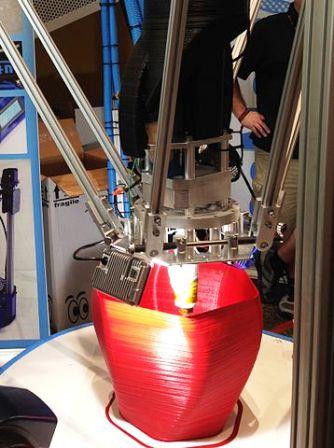
Several organisations are harnessing the power of 3-D printers to print prosthetic arms and legs for children and adults. Some employ volunteers to print such arms for children (e-nable.org and limbs.earth) while others have become creative in utilising canes to make prosthetic legs (riselegs.com) that could fit into a 3D sculpted socket with the shared aim of making radically inexpensive prosthetics for underserved populations around the world.
Contact e-nable.org, riselegs.com or limbs.earth to contribute to their initiatives and spread the word about their offerings for others to benefit.
Affordable Meningococcal conjugate vaccine for Africa
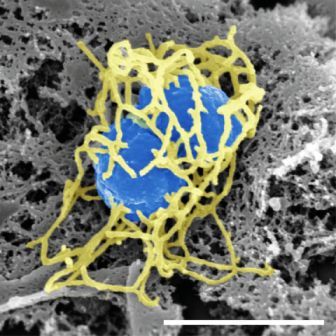
Through an innovative partnership between PATH, the World Health Organization (WHO), and Serum Institute of India Pvt. Ltd. (SIIPL), a vaccine against meningitis A, MenAfriVac®, was introduced in 22 of the 26 countries in the sub saharan African meningitis belt. This has almost eradicated meningitis A epidemics in the region and it is estimated to save more than 400 million lives by 2020. To eradicate other forms of meningitis in the region, PATH is again collaborating with SIIPL to develop an affordable meningococcal conjugate vaccine against serogroups A, C, W, X, and Y. The UK Department for International Development is supporting this initiative and the vaccine candidate is ready to enter Phase 3 clinical trials in Mali and Gambia — a step closer to ultimately eliminating all forms of epidemic meningitis in the African meningitis belt.
Contact PATH – they are looking for individuals with the right skills and organisations with the right resources to help with this project.
The Cardiopad
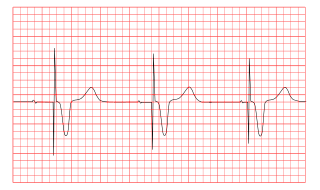
A Cameroonian engineer, Arthur Zang, has developed a program that allows a touch screen tablet to collect a moving graphical depiction of the cardiac cycle via electrodes that can be attached a person’s chest. This data can then be transmitted over a GSM network to a cardiologist for interpretation and diagnosis. This is hailed as a very novel and essential tool that has improved the access of affordable medical diagnostics in rural Africa for hundreds and thousands of people.
If you want to learn more about the Cardiopad and know the need for such a tool in your community or another, please contact the company (Himore Medical) directly.
Fighting fake drugs
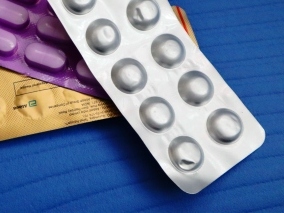
A point of sale product verification solution to trace fake drugs was developed by Ghanaian, Ashifi Gogo, the founder of Sproxil. Using this solution, users are able to text a code on medicine containers to a free number to confirm their authenticity. Introduced first in West Africa, Sproxil’s products are now used in five countries across three continents.
If fake drugs is a big issue in your country, this simple solution may be able to tackle it, so please contact Sporoxil directly to learn more.
The MobileODT cervical cancer screening system
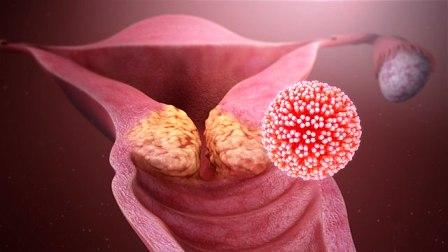
Israeli medical company MobileODT has launched a new mobile colposcope equipped with a light source and magnifying lens that allows a phone’s camera lens to capture a detailed image of any abnormalities in a woman’s cervical tissue. This device is suited for remote, low-income areas where people have access to smartphones but not doctors or accessible diagnostics! A nurse can make a diagnosis looking at the photos of the patient’s cervix and also pass it to a physician for further analysis. The cervical cancer screening system has already been trialled in Kenya.
If you think there are communities in your vicinity and your country who can benefit from this smart device, please contact mobileodt directly.
The She28 campaign
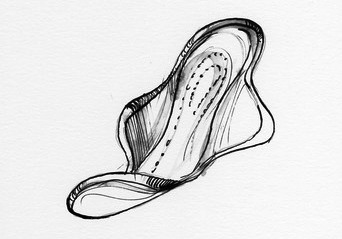
Through a wonderful synergy of ideas and smart application, Sustainable Health Enterprises (SHE) in Rwanda is working with more than 600 banana growers, mostly women and girls from poor communities, to produce affordable sanitary pads using agro-waste. This project is ensuring that thousands of young girls and women in African have access to basic amenities of personal hygiene, something that is easily taken for granted in several other parts of the world.
Support the she28 campaign and contact the team to find out more about the project so that it can be adopted in your country or community as well, if there is a need for one.
Society, culture, law
Living Goods
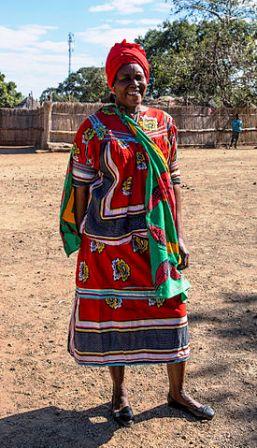
Through a synergy of best practices from business and public health, Living Goods (livinggoods.org) is empowering people in Kenya, Uganda, Zambia and Myanmar to improve the health of their families, friends and communities. Following an ‘Avon-like’ business model, Living Goods supports networks of women health entrepreneurs who go door to door and teach families about improving their health and wealth, as well as sell life-changing products such as simple treatments for malaria and diarrhoea, safe delivery kits, fortified foods, clean cook stoves, water filters, and solar lights. Over the next decade, Living Goods aims to improve the health and wealth of 50 million people in need.
Living Goods wants dynamic partners in Nigeria, Ghana, Kenya, Uganda, Zambia, Myanmar, and India. So, if you are keen to replicate the model to benefit your country or start a social enterprise with a meaningful mission, please contact Livinggoods.org.
“A White Dress Does Not Cover the Rape” campaign
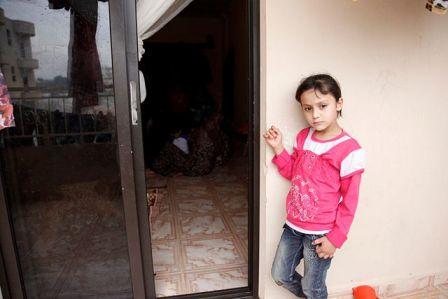
This campaign led to the repeal of Article 522, the infamous rape-marriage law in Lebanon! The campaign was organised by ABAAD , that aimed to abolish Article 522 of the Lebanese Penal code. It is because this allowed men convicted of sexual assault, abduction, or statutory rape against a woman, to avoid penalty of no less than five years of hard labour if a valid contract of marriage could be provided. It was a gross discrimination against girls and women and their human rights.
If you are aware of such gross discrimination or violation of basic human rights do not step back from standing against those. Please feel free to contact ABAAD to learn more about their experiences and lessons learnt in the process of this initiative.
Almajiri Child Education and Social Inclusion initiative
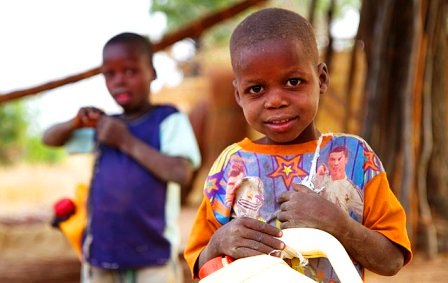
This bold initiative is synergising the efforts of activists, lawyers, consultants, social workers and researchers to hold the government accountable for the education and social inclusion of 9 million Nigerian Almajiri children. Nigeria has about 13 million children out of school and a fair majority of them are from the troubled north-eastern provinces of Nigeria that are struggling with Boko Haram terrorists, hence making these children most vulnerable to exploitation and abuse. The Almajiri children undergo a currently unregulated, Islamic scholarship practice and do not receive any formal education and live in deplorable conditions, aggravated by daily street begging, and then they grow up to find no fitting jobs in today’s competitive world.
As a result of the efforts of the Almajiri Child Right Initiative (ACRI) advocacy group, a “National Child Destitution Bill” aimed at addressing the abuse of millions of Almajiri children was proposed and several politicians from across the political parties in Nigeria have promised to address the matter.
Please spread the word about this bold initiative via all means possible and contact the campaigners to support them.
Unequal Scenes Project

The unequal scences project uses drone imagery to showcase the astonishing divides in many societies around the world due to inequality. The project began in various cities in South Africa and has spread to Kenya, Tanzania, India, USA, and Mexico, where inequality is most stark. This portrayal of inequality is helping civil society organizations, governments, academics, and other parties interested in communicating the problem of inequality. Find out more about the project and see how the portrayal of inequality can be used to educate and inspire everyone in taking necessary steps towards alleviating that
Find out more about the project and see how the portrayal of inequality can be used to educate and inspire everyone in taking necessary steps towards alleviating that.
2030 Youth force in the Philippines (YFPH)
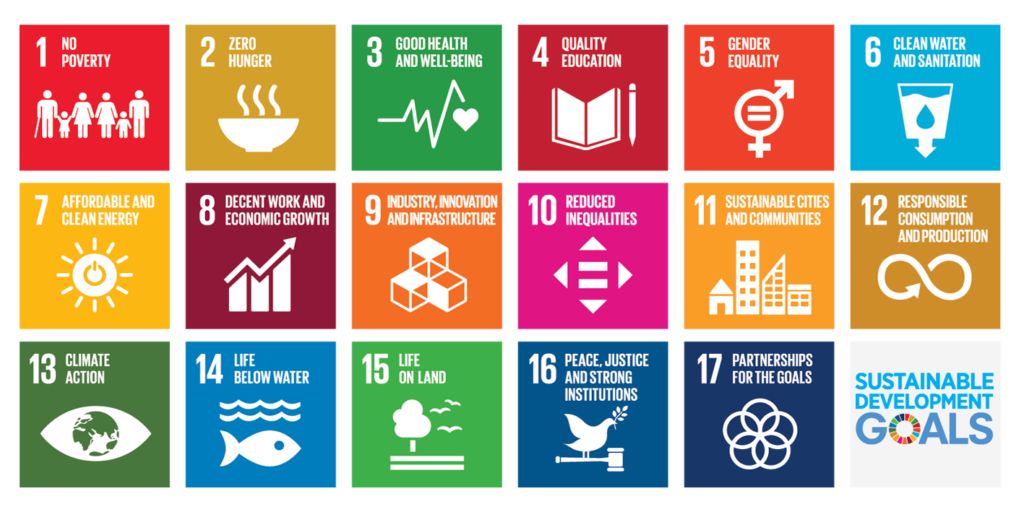
YFPH inspires, educates and activates the youth who make up nearly half of the national population in the Philippines, to collaborate and achieve sustainable development in line with the UN 2030 Global Goals. Over 2400 member advocates are in charge of different UN SDGs for the different parts of the country to ensure campaigns reach the grassroots levels leaving no one behind.
If you are keen to replicate the model in your own country or small community please contact YFPH to learn more about their experiences so that you can organise a similar initiative successfully.
Refugees United (REFUNITE)

REFUNITE is an online search tool that helps refugees and internally displaced people find their families via on online searchable database using the internet or a mobile phone. It’s partners include the International Rescue Committee (IRC) and the UN Refugee Agency (UNHCR), as well as all major mobile network providers of Africa and the Middle East. Families can search for their missing loved ones by registering onto REFUNITE’s family tracing platform. More than 100,000 people are registered on the online platform which is available in different languages and contains searchable information on refugees from more than 82 countries. Right now thousands of lives are getting reconnected with the aid of REFUNITE.
If you know refugees who are looking for lost family members, please pass on this information to them.
Follow the money
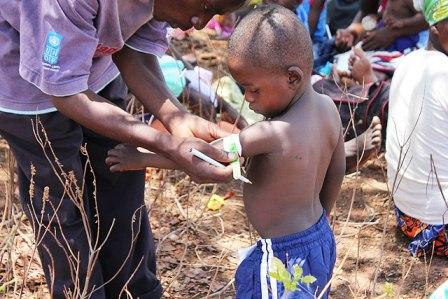
The project has tracked over $10 million meant for social development across African communities, impacting over 2 million lives. As part of the initiative, freedom of information (FOI) letters were sent to officials for project details: amounts, beneficiary community, bill of quantities, etc. The information received was then transmitted to the grassroots empowering them to ask elected officials questions on accountability, as well as follow up on the projects.
Poor accountability and corruption is often a big issue for aid across the globe. So, if you would like more accountability of the aid funds or resources to make real change in your country and communities, visit followthemoneyng.org to identify means of adopting their model.
M-Pesa
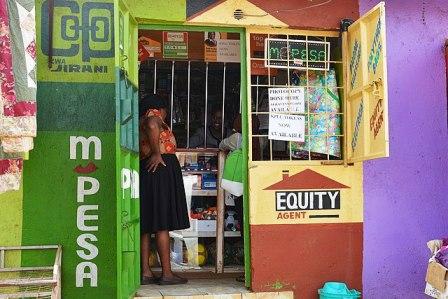
M-Pesa is a mobile payment service. This initiative is an extraordinary example of synergy of mobile phone technology and its application in the retail finance sector. This mobile phone-based money transfer, financing and microfinancing service was first launched in Kenya and Tanzania by Vodafone for Safaricom and Vodacom in 2007 and has since then spread to Afghanistan, South Africa, India, Egypt, Ghana, Congo, Mozambique, Lesotho, Romania and Albania. It has also been hailed as a modern tool for reducing poverty because the service also offered small businesses an easy way to repay their loans on time, thus avoiding punitive interests on the capital. The service was so successful, that in its first decade, M-Pesa processed 6 billion transactions for 30 million users worldwide.
If you want to find out more about M-Pesa, contact your mobile telecom provider to see if you can do that via your mobile phone.
Energy, industry, environment
Blockchain solutions for plastic waste
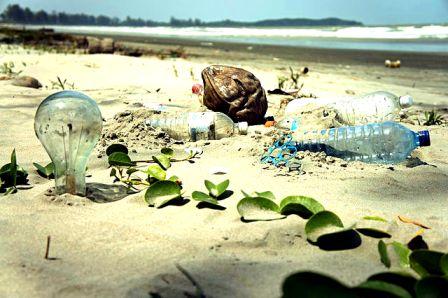
Plastic bank and empower are using the power of blockchain to incentivise cleaning up plastic and also fight poverty in the process. The principal of giving plastic a value, allows the exchange of plastic for money, items, or Blockchain secured digital tokens, thus incentivising people to clean it up and not deposit plastic in the nature.
If you want a cleanup of your local area or want to contribute to the efforts of any of the above organisations, contact them individually to see how you can be of help.
Plastic trash to building materials
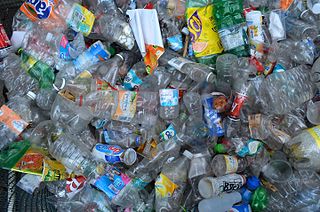
Through a wonderful synergy of engineering sciences Byfusion makes new building materials from all types of plastic trash into an advanced new building material, ‘byblocks’, using the ByFusion Blocker, an industrial machine for municipalities and Recycling Facilities. The process produces 95% lower greenhouse gas emissions than when making concrete blocks. On similar lines, Ecodom in Mexico is making affordable homes for disadvantaged people by collecting plastic, melting it down and shaping it into large panels. It takes seven days to build a house using two tons of waste plastic – the costs are low and the house is expected to last 100 years without falling apart.
If you feel inspired by these innovations and initiatives, please contact the organisations directly to see how you can use their products in your communities or perhaps start a similar enterprise yourself!
Save the Tigris and Iraqi Marshes
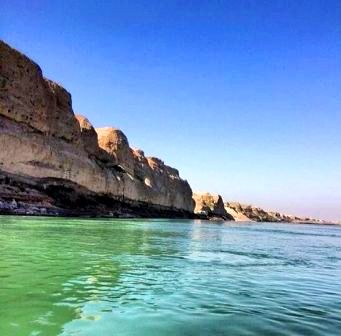
This advocacy campaign was started in 2012 by a group of Iraqi and international non-governmental organisations with the purpose of saving the World Heritage on the Tigris River from the impacts of dams and other destructive megaprojects. All the neighbouring countries and communities that are currently served by the river are developing projects without mutual consultation with hardly any evaluation of the long-term impact of these projects. The mission of the campaign is to use water as a force for peace and cooperation in all the countries and people of the Tigris-Euphrates basin.
To find out how you can support the campaign and find out more about the potentially harmful effects these megadams could have, and how the advocacy is fighting to protect the Tigris, visit Savethetigris.
Seedballing Kenya
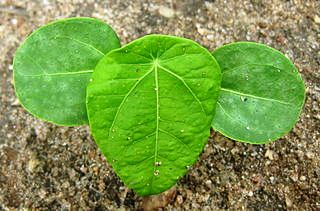
Seedball is a simple but smart innovation borne out of synergy of common sense and clever use of available resources to meet an environmental necessity in Kenya. Seedball is a seed inside of a ball of charcoal dust mixed with nutritious binders. Seedballs are currently used to replant indigenous trees in Kenya in a cost effective way using all possible means from camels, to humans to aircrafts.
If you would want to use seed balls for reforesting your country or locality, please contact seedballskenya for more details.
Loop zero-waste delivery system
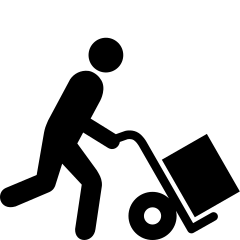
Loopstore.com uses a zero-waste delivery system that eliminates disposable, single-use shipping materials- the Loop Tote. Reusable containers of consumables can be delivered, collected back, cleaned and refilled for subsequent orders by customers, via the Loop delivery systems. A few progressive manufactures have already started designing containers that can be used through the Loop delivery system and some are already in circulation.
To find out more about Loop and ask your online shop or superstore to use Loop unless they are already doing so. If your favourite stores are not yet doing that, ask them to do so or loose you as their customer!
Sustainable Alternative Lighting (SALt)
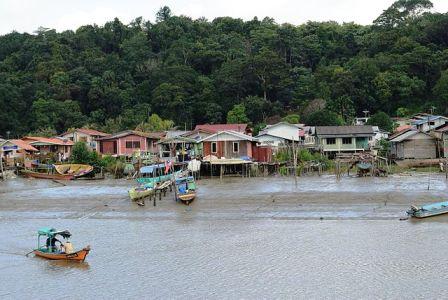
SALt is a Filipino startup that has created a saltwater solution-powered lamp that retains power for up to eight hours and stops people from using potentially health-endangering kerosene lamps and candles. Their product contains only one disposable component that lasts for six months and is inexpensive to replace. Through partnership with NGOs, foundations, and LGUs, SALt provides aid to communities in need of portable lighting support.
To learn more about the products, please visit www.salt.ph or if you think that the SALt lamp will benefit another initiative or project where people need a robust but portable lighting product, please get in touch with the company.
M-Kopa: mass-scale solar power
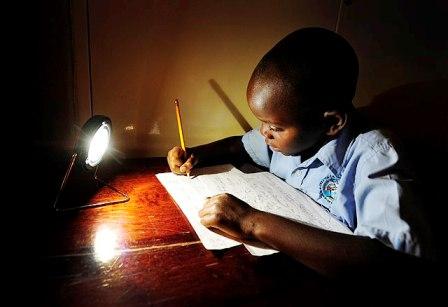
As of recently, M-Kopa a Kenyan startup that launched in 2012, has successfully connected more than 600,000 homes in East Africa to affordable solar power sources. So far, it is estimated that M-Kopa had saved customers who live on less than $2 a day, a total of $450 million, and reduced CO2 emissions of 780,000 tonnes.
If you would want to learn more about the products, supply chain and operational model of M-Kopa, to replicate it in your country or community, please contact them directly via the website
Nubian Vault
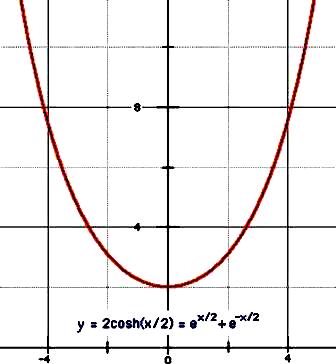
Association la Voute Nubienne organises recruitment and on-site training of Nubian Vault builders in the Sahel (the ecoclimatic and biogeographic zone of transition in Africa between the Sahara to the north and the Sudanian Savanna to the south) region of Africa. These low-cost, environmentally sustainable houses, churches, mosques, schools, literacy centres, and dispensaries are made of mudbricks without the need for any timber or steel. The initiative offers livelihood to locals as masons as well as inexpensive accommodation for people. This initiative is growing at a rate of 30% year on year in the Sahel region and it is expected to benefit 20 million people, i.e. 5-10% of the relevant population of the Sahel region by 2030.
If you have been inspired by this project, please contact Association la Voute Nubienne to see how you can support them, participate in any of their programs or spread the message to others who might benefit from it.
The above initiatives were not initiatied or endorsed by the Centre for Big Synergy.
